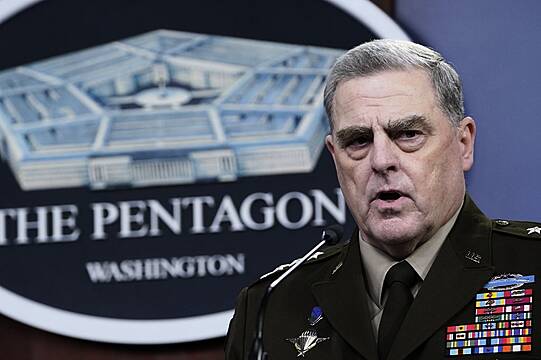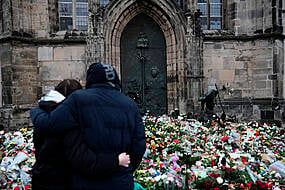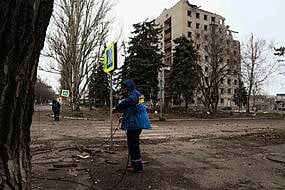A military chief has said that it is “possible” the US will have to coordinate with the Taliban on any counter-terrorism strikes in Afghanistan against so-called Islamic State.
Army General Mark Milley, chairman of the Joint Chiefs of Staff, said the Taliban is a “ruthless” group and “whether or not they change remains to be seen”.
He added: “In war you do what you must in order to reduce risk to mission and force, not what you necessarily want to do.”
Speaking two days after the final US troops left Afghanistan at the close of a turbulent and deadly evacuation of more than 124,000 American citizens, Afghans and others, Mr Milley and Defence Secretary Lloyd Austin told reporters that it is hard to predict the future of the Taliban in Afghanistan.
“I would not make any leaps of logic to broader issues,” said Mr Austin.

Both men commanded troops in Afghanistan during the 20-year war and their comments on Wednesday largely focused on tributes to those who served, who died and who were wounded in the conflict and to those who executed the complex airlift over the past three weeks.
With the US involvement in the war over and all American military out of the country, President Joe Biden is grappling with the prospects of a new relationship with the Taliban, the Islamist militant group the US toppled after the September 11 2001 attacks in America.
Mr Biden has tasked Secretary of State Antony Blinken with coordinating with international partners to hold the Taliban to their promise of safe passage for Americans and others who want to leave in the days ahead.
Marine General Frank McKenzie, head of US Central Command, has described the US relationship with the Taliban during the evacuation as “very pragmatic and very businesslike”, saying they helped secure the airport.
But other reports from people in Afghanistan describe shootings, violence and Taliban moves to block desperate Afghans from getting through the gates.
In an address to the nation on Tuesday, Mr Biden called the US airlift an “extraordinary success,” though more than 100 Americans and thousands of others were left behind.

And he vigorously defended his decision to end America’s longest war and withdraw all US troops by an August 31 deadline.
“I was not going to extend this forever war,” Mr Biden declared from the White House. “And I was not going to extend a forever exit.”
Mr Biden has faced tough questions about the way the US went about leaving Afghanistan — a chaotic evacuation with spasms of violence, including a suicide bombing last week that killed 13 American service members and 169 Afghans.
He is coming under heavy criticism, particularly from Republicans, for his handling of the evacuation.
But he said it was inevitable that the final departure from two decades of war, first negotiated with the Taliban for May 1 by former president Donald Trump, would have been difficult, with likely violence, no matter when it was planned and conducted.
“To those asking for a third decade of war in Afghanistan, I ask, ‘What is the vital national interest?’” Mr Biden said.
He added, “I simply do not believe that the safety and security of America is enhanced by continuing to deploy thousands of American troops and spending billions of dollars in Afghanistan.”







